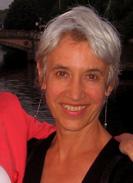Angelika Bammer, PhD

Role: Associate Professor, Emory University
Contact: abammer@emory.edu
Scholarship:
Memory Studies
|
History and Trauma
|
Literature
|
Memoirs and Autobiographies
|
Memorial Practices
Angelika Bammer was trained in the theory and practice of textual analysis with an emphasis on narrative. After studying philology at the University of Heidelberg, she focused on modern literature and cultural production, including film, earning a PhD in Comparative Literature from the University of Wisconsin-Madison. Within the broad range of critical theories she brings to bear on her work, she is particularly grounded in feminist, Marxist, Freudian, and post-structuralist critical thought.
At Emory University, she is an Associate Professor of Interdisciplinary Humanities in the Department of Comparative Literature. She has written and published on twentieth-century literature and culture, film and photography, and utopian thought. In recent years her work has focused on two main areas of inquiry: (1) history, memory, and forms of memorialization; (2) methods of scholarly inquiry and forms of scholarly production.
She has received fellowships from the Mellon Foundation, the National Humanities Center, and the National Endowment for the Humanities (NEH). Her co-edited volume on The Future of Scholarly Writing: Critical Interventions (Palgrave-Macmillan) was published in 2015, as was the expanded and updated new edition of her Partial Visions: Feminism and Utopianism in the 1970s (first edition, Routledge, 1991). She is the editor of Displacements: Cultural Identities in Question (Indiana UP, 1994), and a special issue of new formations: a journal of culture/theory/politics on The Question of “Home” (1992). A multi-media installation of her work on Memory Sites: Destruction, Loss, and Transformation was shown at both Emory University and the University of Wisconsin-Madison. She is completing a study of the transmission of history across four generations in form of a personal narrative (Born After: A German Reckoning) and plans to revise a set of reflections on The Wounds of History and the Work of Memory into book form.
